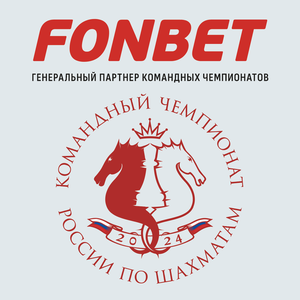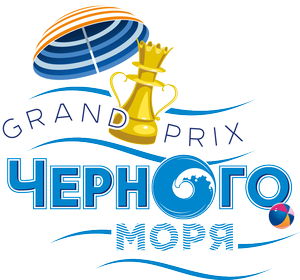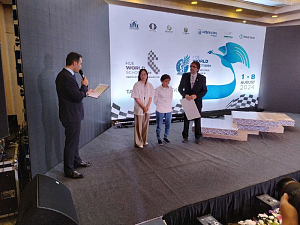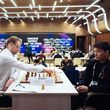18 April 2016
Young Solvers Congress No.4
The start of the Russian Junior Championships in the review of Eteri Kublashvili.
From year to year the scope of the Russian children championship program becomes larger and richer, while the number of participants attending the event grows increasingly. The sequence of competitions, organized within the championship’s framework, is also subject to change and gradually becomes more and more suited to the needs of players themselves, as well as for their coaches, parents, and the organizers.
The young chess players started this year’s Russian championship with the problem solving contest. It will be followed by the rapid chess tournament, then children will go on to reveal the best in the main “classic” format, and it will all be wrapped up by the blitz. We of course do not forget about the Russian U21 Junior Championship. Meanwhile, the main program will be accompanied by lectures, training sessions, master classes, and sports programs, which is unlikely be hindered even by the rainy Sochi weather.
About what the Russian championship is going to be like this year was shared by Alexander Tkachev - the Tournament Director and Deputy Executive Director of the Russian Chess Federation.
- First of all, I want to note the record number of participants because a lot more visitors is expected to arrive if compared to previous years. As many as 1860 people have filed their applications - and those are just athletes.
The problem solving contest features 144 players from 36 constituent entities of the Russian Federation. The idea of running the Russian problem solving championship was born five years ago. The first tournament featuring U15, U17 and U19 age groups took place in 2013 in Obninsk and gathered a total of 28 persons from four regions. Now we see that people have started to take a real interest in this type of tournament, many constituent entities running problem solving championships, even holding championships on the federal district level. I have little doubt that the interest will only keep growing. Meanwhile, we will continue running this competition in the future and there is a feeling that it will attract even more participants from different regions.
As we speak now the most active process of the tournament is underway as people are arriving and being accommodated. Thanks God, having gained some experience from the past we have managed to do so that all services are working very well at the moment and there are no major inconsistencies. There are some minor flaws, of course, such as a bulb light being in need of replacement, but those are some petty problems that are easy to handle.
First of all, the attitude of the “Aqua Loo” hotel management cannot but rejoice you. They are extremely interested in our presence and, of course, try to maintain all possible conveniences all the way to the animation service that takes care of meeting participants at the airport and train stations.
As tradition has it, there are certain regions that take decisions at the last minute and show up like a bolt from the blue. However, this is a surprise neither to the Organizing Committee nor to the accommodation service because we know from the past experience that a certain reserve should be foreseen and allocated for this purpose. For example, almost 10 unregistered players from the Primorsky Kraj arrived yesterday. Likewise, the participants from the Ulyanovsk Oblast arrived virtually without any prior warning. Despite all that everyone was accommodated without any extensive delays. I wan to underline once again that the practical implementation of the advanced registration idea, which appeared five years ago, manifests itself in the fact that the accommodation process takes from 3 to 5 minutes only. For this championship cycle we first started registration immediately after completion of the federal district championships (i.e. in the early December) and, accordingly, by March almost as many as 90% of all applications were already submitted to us. I wish it were at least 95% in the year to come (laughing).
- What training classes will be carried out this year?
- Training classes have traditionally become an integral part of the championship program. This year the Russian Chess Federation together with our general partner “Fosagro” organizes training of additional education teachers. Thanks to our program (i.e. the agreement concluded between “Fosagro” and RCF) people from different federal subjects will come here for four days to attend lectures of leading experts in the field of children’s chess. For example, presentation of Vladimir Barsky’s training package, recently finalized with the support of the Elena and Gennady Timchenko Charitable Foundation, is planned to take place.
The presentation will be a “broad” one since it covers the whole country in the truest sense of the word. I would like to add that for the first time in the history of the Russian Championship a representative of the Magadan Region is participating in the tournament. Also expected is participation of the team from Tyva, which has not taken part in the Junior Championships for a long time now. In fact, only the Nenets and Chukotka Autonomous Okrugs we are not included, but otherwise as many as 83 out of 85 regions are among participants. This is yet another distinctive feature of the tournament.
***
As for the of the Russian problem solving championship, it will be held within two days - April 16 and 17. More insight into this contest was given by Chief Arbiter Alexander Azhusin:
- The fourth Russian Championship features three age groups: U15, U17 and U19, with boys and girls competing separately. An original format has been developed by us for this event: 4 rounds with time control equal to 60 minutes. Different genres of problems are offered for solution: mates in two, three or more moves, whereas U19 group boys and girls are also given help- and selfmate positions. It goes without saying that help-and selfmates are a novelty for many young players, but the problems are not that difficult. The master class, carried out in advance of the championship, had it all explained in detail, so that these types of problems should not be a cause of any difficulties. To solve these types of problems is required since they make part of the international format. There are no competitions in the world nowadays that are carried out without help- and selfmates, therefore we gradually introduce them into the program of the Russian championship.
Children are very well motivated since the play and recreation conditions here are excellent, coupled with cash prizes. Thus, the first prize in each category amounts to 9000 rubles.
- How do you define winners?
- Winners are defined based on the aggregate number of points accumulated through all four rounds. If the number of points is shared (which is a highly unlikely event), then the time factor comes into play: the one who uses less time to solve problems throughout all four rounds is qualified as a winner.
- Is it a qualifying tournament?
- No, it is not. In fact, it remains an experimental competition for a while. However, everyone takes an interest in trying his hand in solving chess problems, and the children are drawn to it. I want to add that last year there were 92 persons, while this year there are already as many as 144.
It will be as soon as tomorrow that the names of the Russian chess problem solving champions in U15, U17 and U19 age groups will become known.

















